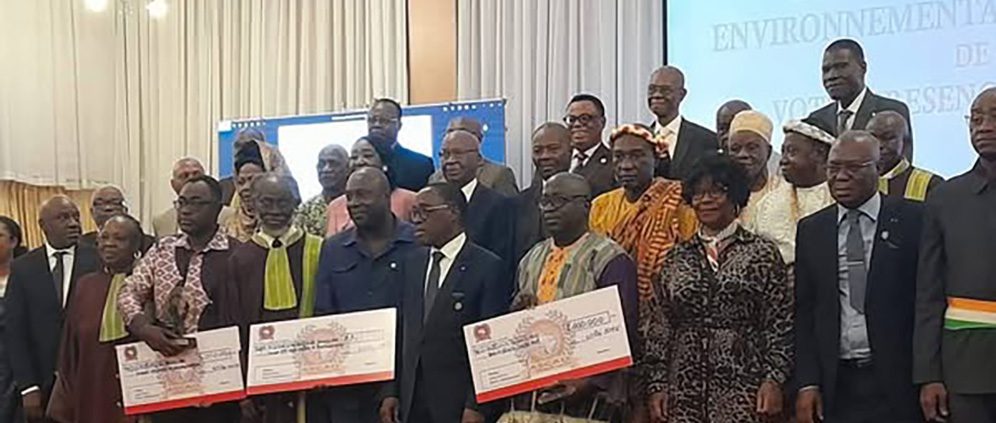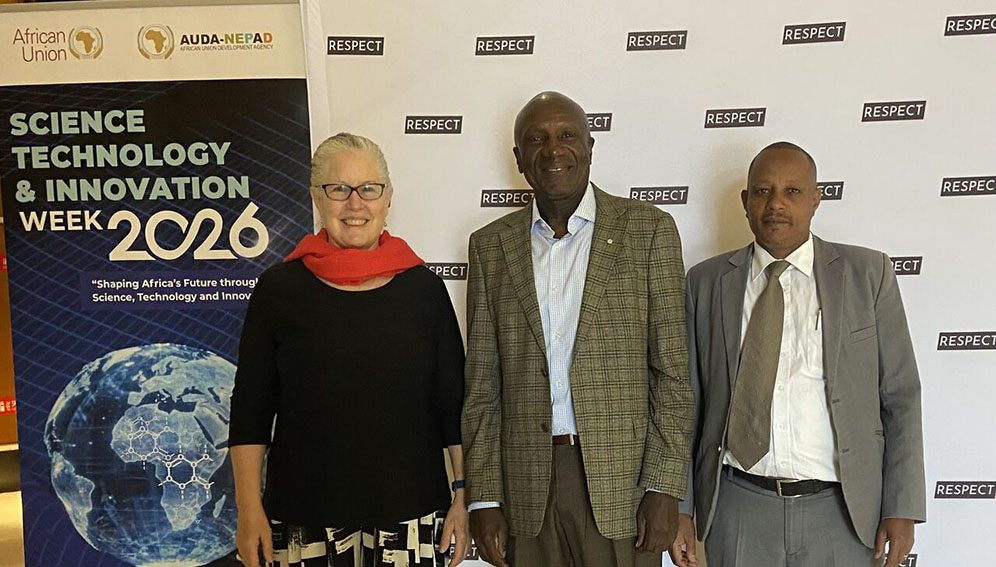SGCI News
A Science Granting Councils Initiative (SGCI) funded research has earned national recognition in Côte d’Ivoire. The winner, Rodrigue Adjoumani Kouakou, is the assistant professor of chemistry, physics, and process engineering…
A Science Granting Councils Initiative (SGCI) funded research has earned national recognition in Côte d’Ivoire.
The winner, Rodrigue Adjoumani Kouakou, is the assistant professor of chemistry, physics, and process engineering at the Training and Research Unit for Fundamental and Applied Sciences (UFR SFA) of Nangui Abrogoua University (Abidjan).
He received the SGCI funding through The Fund for Science, Technology and Innovation (FONSTI), Côte d’Ivoire.
The winning innovation is a biogas system that converts chicken poo into clean, renewable energy.
The research focuses on helping rural and peri-urban communities harness agricultural waste for energy needs, reducing reliance on firewood and fossil fuels, while simultaneously tackling waste management.
He was awarded the first incentive prize at the2025 Academy of Sciences, Arts, Cultures of Africa and African Diasporas (ASCAD) awards.

The ASCAD award ceremony was held on 30 May 2025, in Abidjan-Cocody, under the theme, “Contributing technological innovations to population development.”
In addition to the national recognition, Kouakou receives a three-million CFA franc (US$5,366) grant to develop further and scale his biogas system.
How the system works
Kouakou said he developed a system for heating brooders using biogas obtained from chicken droppings to replace the traditional method using charcoal.
This system, called a methaniser, is the result of research work entitled “Design and construction of a system for heating chicks using biogas from chicken droppings”.
Kouakou said the methaniser has a capacity of 20 m3, continuously fed by poultry droppings.
“It is mainly composed of three compartments. The first compartment receives the raw material, chicken droppings.
The waste and water are mixed in the methaniser’s feed basin to obtain a homogeneous mixture,” he said.
The mixture is then taken to the biodigester chamber, the second compartment, until it is completely decomposed.
The decomposition will lead to the formation of biogas.
“Through a filtration and purification system using iron salt filters, silica gel, and activated carbon, the biogas will be recovered and piped to the storage facility.
The stored biogas is used as needed, either in a biogas stove or in radiant heaters to heat the chicks”.
The methanisation digestate, composed of the solid fraction or methacompost and the liquid fraction or process juice, is transported from the digester to the third compartment, which is the expansion pit. From this pit, the two fractions (solid & liquid) of the digestate will be recovered by two open basins.
“The biogas is produced from a fixed-dome digester. The biogas is collected under a fixed concrete dome, displacing the effluent sludge as the gas pressure increases.”
Visibility
Kouakou credited a recent feature in SciDev.Net’s Francophone Africa edition with increasing visibility for his work.
The article, published in partnership with SGCI, highlighted the relevance and potential of his innovation.
He noted that the coverage contributed to his being nominated for the ASCAD award.
The SGCI continues to support impactful research across Sub-Saharan Africa by strengthening national research systems and funding mechanisms.
SGCI congratulates Kouakou on this well-deserved recognition and remains committed to enabling African researchers to lead in innovation for development.
Please check out the stories and let us know what you think. We would love to hear from you.
Let’s continue the conversation on our social media
Written by Jackie Opara
Related News
Building Africa’s science future: inside the SGCI alliance
As Phase 3 of the Science Granting Councils Initiative launches on the margins of the African Union Summit in Addis Ababa last week, the SGCI Alliance Chair explains why this moment marks a decisive turning point for African science. Cephas Adjei Mensah describes what is…
Open call: Support for science granting councils in Sub-Saharan Africa
The International Development Research Centre (IDRC), through the Science Granting Councils Initiative (SGCI), has launched a call for proposals to support science granting councils in Sub-Saharan Africa in the establishment and operationalisation of the Capacity Strengthening Hub under Phase III of the SGCI-3. The Hub…
SGCI phase 3: USD 42M boost for Africa’s STI agenda
It was an exhilarating moment as the Science Granting Councils Initiative (SGCI) Phase 3 funding announcement was officially made yesterday during the Science, Technology, and Innovation (STI) Week 2026, held in Addis Ababa, Ethiopia. The STI Week, organised by AUDA-NEPAD and the African Union and…
SGCI funded projects
Rwanda’s integrated approach to sustainable agriculture and nutrition
Project Titles & Institution Areas of Research Number of Projects being funded Project Duration Grant Amount In-Kind Distribution Council Collaboration with other councils





